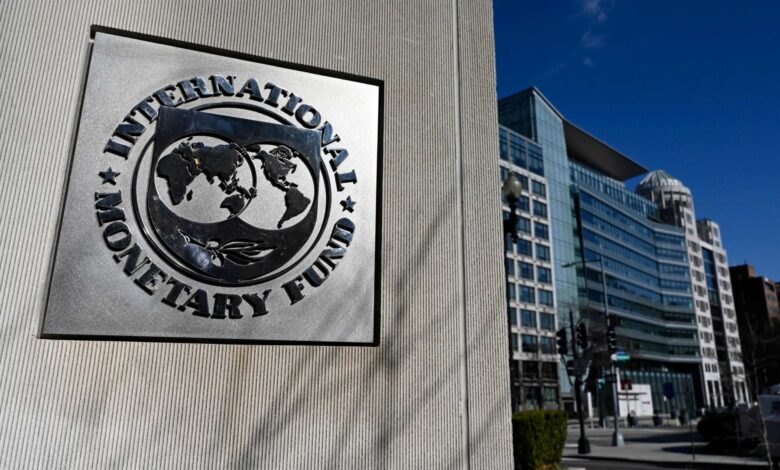Third tranche IMF cash not expected to resolve the Cedi challenges – UGBS Prof

The third tranche of $360 million cash from the International Monetary Fund (IMF) which is expected in Ghana, all things being equal, in June, is not expected help tackle the Cedi challenges, a Professor at the University of Ghana Business School, Patrick Asuming, has said.
He explains that this not new money. The market has alriced planned and priced on this ex[ccetd cash.
Asked whether the third tranche would help tackle the Cedis challenges he said on the Ghana Tonught show on TV3 Tuesday, May 22 “It shouldn’t. Because the market would have priced in. It has become obvious that we are going to get the third tranche very soon and therefore the market would have priced that in but I think at the moment it will take some positive unexpected turn about the economy.
“This money we know is coming is not new money so the market would have already priced that. It will shore up the reserves of the Central Bank. Our reserve position, even though has improved significantly from 2022, it is still not the strongest it can be, so even if the central bank wanted to support the Cedi by putting additional dollars on the market, it is actually not just in their position, it doesn’t have that much reserves to help solve this problem.
“I think there is still something to do with the World Bank when Parliament recently met I think there was some loan that was approved, a 150 million USD, so if we get all of those suddenly then it might help ease the situation a little bit but I think at the moment it is a little bit difficult for the central bank.”
Prof Asuming further stated that it is not clear when the problems of the Cedi will be resolved.
He explains that the country is still importing more than it is exporting. Over-reliance on imports is a major factor affecting the Cedi.
Also, he said, investors are concerned about the economy in an election year. These two major factors, put together, are causing the woes of the Cedi.
He said “You have to look at where this rapid depreciation is coming from. Generally, the balance between our imports and exports is really the long-term driver of the currency, that’s usually true. So in a typical year, the Cedi will depreciate 5 percent.
“In our case, when you look at our trade balance compared to last year, our trade balance is lower. I think last year, in the first couple of months, our trade balance was about 1.1 percent of GDP. This year is 0.5 percent but we are still expecting more than we are importing, you do see that this year the first couple of months, our import bill is almost twice what we did last year. so there is this part.
“Then, because it is an election year, usually election years come with jitters so I think it appears investors have additional concerns about the economy. When you put all of these together it means it is a configuration of factors that are playing in the currency we are seeing and there is no clear straightforward solution and because of that, there is not so clear that there is an end in sight, unfortunately.”
The rate of Cedi depreciation this year is lower than last year – Finance Minister
Also commenting on this issue, the Chief Executive Officer of the Chamber of Commerce, Dr Mark Badu-Aboagye said the abysmal performance of the Cedi against the major trading currencies is disturbing businesses.
He said that this is certainly not a good time for businesses in Ghana owing to the free fall of the cedi.
“Not a good time for businesses. Rate of depreciation of the cedi and high cost of operating troubling,” Dr Mark Badu-Aboagye said on the Ghana Tonight show on TV3 on Thursday, May 16.
Ghana’s cedi is in a record-breaking weakening cycle. The currency hasn’t gained versus the dollar in the past 22 trading sessions, the longest streak, Bloomberg reported.
The currency hasn’t gained versus the dollar in the past 22 trading sessions, the longest streak according to data compiled by Bloomberg going back to 1994. The cedi traded 0.3% weaker at 13.9310 by 1 p.m. in London.
It’s declined 14% this year, a slump beaten only by currencies that have been devalued, including the Egyptian pound and Nigerian naira.
The slide has been fueled by a slump in cocoa earnings, with exports dropping by nearly a third to $508 million in the first two months of the year due to adverse weather, disease and fertilizer shortages.
Despite a temporary surplus in 2023, Ghana’s historical current account deficit is also resurfacing, signaling further challenges to the cedi, said Gergely Urmossy, emerging market strategist at Societe Generale.
Cedi woes: Provide incentives for production, not levies and taxes – Yankah tells govt
The cedi’s forward curve calculation sees the currency breaching its record low of 14.6174 per dollar by the third quarter, ending the year at 15.98. FX forward pricing is calculated based on the spot rate and the interest rate differentials between the two currencies for the tenor of the forward.
In the wake of the poor performance of the Cedi, a Minister of State under the Rawlings administration, Kojo Yankah, has suggested to the government to prioritise the provision of incentives for businesses to produce more, not the introduction of taxes.
Mr Yankah indicated that taxing businesses amidst the dwindling fortunes of the local currency is only suffocating the business community.






